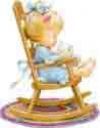|
ESL Forum:
Techniques and methods
in Language Teaching
Games, activities
and teaching ideas
Grammar and
Linguistics
Teaching material
Concerning
worksheets
Concerning
powerpoints
Concerning online
exercises
Make suggestions,
report errors
Ask for help
Message board
|
ESL forum >
Grammar and Linguistics > Neither...nor + question tag
Neither...nor + question tag
|

tahriali

|
Neither...nor + question tag
|
*Add a question tag to this sentence:
Neither Bob nor Mary has/ have come, ............................?
|
29 Jan 2010
|
|
|
|

yanogator

|
|
This doesn �t seem correct logically, but I would say
Neither Bob nor Mary has come, have they?
I �m very interested in what others have to say on the subject.
Bruce |
29 Jan 2010
|
|
|

roadrunnerr

|
|
Neither Bob nor Mary has come, have they?
1 2 3
As it is seen in the numbers, each part should be taken as a singular third person due to the "neither... nor" usage, so the grammar structure should be in the singular third person form. However, at the end of the sentence the tag question is directed to the both of the subjects "they"; as a result, the tag is formed in the third person plural, that �s all... :) |
29 Jan 2010
|
|
|

Olindalima ( F )

|
Hi
I love this kind of trouble.
I am not sure, and I am not a native.
I would say:
" Neither Bob nor Mary have come, have they?
My opinion, ( humble) the subject of the sentence is referred to both Bob and Mary, so, I think, it is a plural subject, so the verb in the main sentence should be "HAVE" and not " HAS". I agree with the question tag, because I think the verb in the main sentence is a plural form and so, it shouldn �t go to a singular form.
Waiting for more opinions, these troubles are always interesting.
I love this kind of discussion, when it seems to me no one knows the right answer, because so many of us have so many different opinions, until, ... just until someone arrives and knocks down everything behind.
Waiting
Have a nice weekend
linda
|
30 Jan 2010
|
|
|

RabbitWho

|
It must be "Neither Bob nor Mary has come, have they?" but I don �t know why, I just feel it, roadrunners explanation must be right!
. "Neither the orange on the table nor the pear is yellow." but "Neither oranges nor pears are yellow."
|
30 Jan 2010
|
|
|

douglas

|
|
I don �t know.
I would say: "Neither one of us has..."
but I would also say: "Neither Bob nor Mary have.."
I am also interested to hear what other people think. (My feeling is that it should be "have") |
30 Jan 2010
|
|
|

phil niro

|
|
I agree to road runner. Considering the universal grammatical rule in the correct usage of NEITHER - NOR . It states that the predicate would largely depends in the immediate subject which follows. In the example, the immediate subject which follows the predicate is Mary thus it should be HAS |
30 Jan 2010
|
|
|

Jayho

|
|
Hi Tahriali
Roadrunner �s explanation is correct: Neither Bob nor Mary has come, have they?
Generally, in neither ...nor:
- Both subjects are singular = singular verb
- One or both subjects are plural = plural verb (note: the plural subject should appear last)
- Question tag = plural
However:
With correlative conjunctions Grammar guru Swan also says that where both subjects are singular then the verb can be plural in a less formal style. We hear a lot of this in spoken everyday conversation.
I �d also like to add that your example, imho, is not common in native speech. People often use a more simple form. Correlative conjunctions, such as neither ... nor, are commonly found in formal writing including academic texts, novels, formal business documents etc and less in informal situations. My suggestion is that you teach the formal style for writing and make your students aware of the less formal style used in conversation and informal writing.
Cheers
Jayho |
30 Jan 2010
|
|
|

GIOVANNI

|
|
I often hear and have seen what Douglas mentioned.
"Neither one of us has..."
"Neither Bob nor Mary have.." |
30 Jan 2010
|
|
|

PhilipR

|
Neither Bob nor Mary has come, have they?
Neither Bob nor Mary have come, have they?
Both are correct. The rule of the �immediate subject � isn �t always used when speaking. Swan agrees as well and describes the second sentence as �less formal �.
|
30 Jan 2010
|
|
|

unused7

|
|
Hi guys,
one thing I would like say is, when we speak or write something down, we often shorten the sencences.
In this case, if we were to say or write the whole sentence it would be � Neither Bob nor Mary has come, has any one of them came? � So, if we were to say the whole sentence, it would be singular.
Just my opinion.^^; |
30 Jan 2010
|
|
1
2
Next >
|